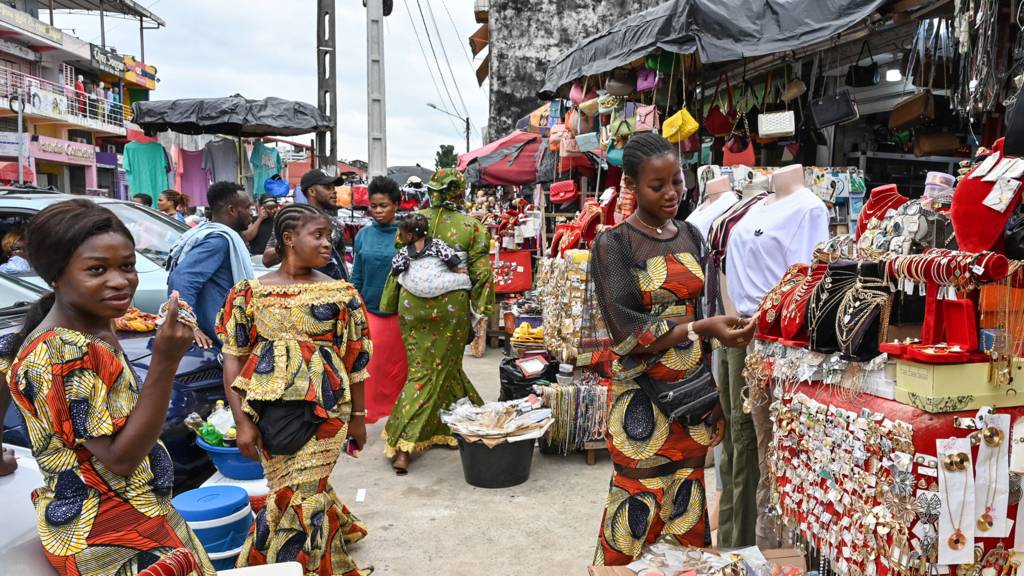
Live
Africa Live this week: 3-9 July 2023
viewing this page
Bringing you the latest news from around Africa at bbc.com/africalive. This is an automated news feed overnight and at the weekend.

Bringing you the latest news from around Africa at bbc.com/africalive. This is an automated news feed overnight and at the weekend.
Live Reporting
All times stated are UK
Get involved
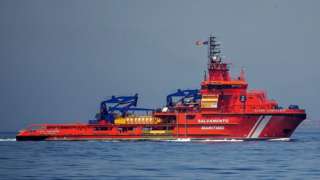
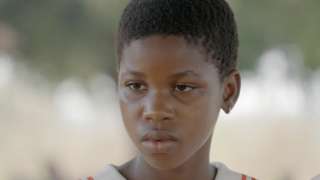
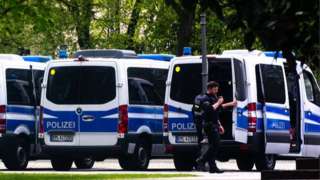


EPACopyright: EPA View more on twitterView more on twitter 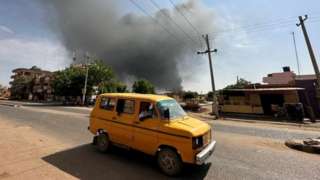

ReutersCopyright: Reuters Libya has huge oil reserves but production has been affected by the conflictImage caption: Libya has huge oil reserves but production has been affected by the conflict 
YouTubeCopyright: YouTube 

TwitterCopyright: Twitter 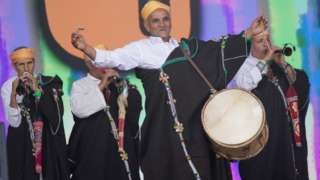


Samuel Alabi/AFPCopyright: Samuel Alabi/AFP 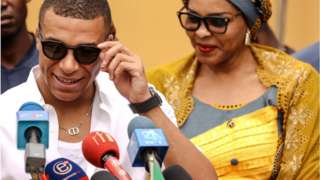

getCopyright: get The United Nations declared 7 July as World Swahili DayImage caption: The United Nations declared 7 July as World Swahili Day 
ReutersCopyright: Reuters Jacob Zuma, seen here last year, was South Africa's president from 2009 to 2018Image caption: Jacob Zuma, seen here last year, was South Africa's president from 2009 to 2018 
AFPCopyright: AFP Tensions flared in Sfax earlier this week after the burial of a young Tunisian stabbed to death during a scuffle between residents and migrantsImage caption: Tensions flared in Sfax earlier this week after the burial of a young Tunisian stabbed to death during a scuffle between residents and migrants 
Sabinyo NewsCopyright: Sabinyo News The M23 leader made a rare appearance on videoImage caption: The M23 leader made a rare appearance on video 

Getty ImagesCopyright: Getty Images The Israeli operation in Jenin was the largest in the West Bank in recent yearsImage caption: The Israeli operation in Jenin was the largest in the West Bank in recent years
Latest PostSpain rescues 86 during search for migrant boat
Three other boats with hundreds more people who travelled from Senegal are still missing.
Read moreChildren wrongly taken in raids backed by US charity
By Chiara Francavilla, Kwakye Afreh-Nuamah & Kyenkyenhene Boateng
BBC Africa Eye
Ghanaian children wrongly labelled as trafficked are being taken from their homes, BBC Africa Eye finds.
Read moreThis page is now closed
Fo the latest updates, please go to bbc.com/africalive
Clashes at Eritrea festival injure 26 German police
Police clash with stone-throwing protesters as Eritrean tensions flare up in a central German town.
Read moreGhana's batmen hunting for pandemic clues
By Naomi Grimley and Camilla Horrox
BBC News, Accra
Scientists want to understand exactly how pathogens can jump species and what the next threat may be.
Read moreZambia stun Germany ahead of World Cup
It was ecstasy for Zambia and a nightmare for hot favourites Germany as the Copper Queens pulled off a stunning 3-2 away victory in a World Cup warm-up match.
Germany - second in the Fifa rankings - were two-nil down as the game entered injury time, but they managed to level the score with two late goals.
The drama wasn't over though as a poor Germany throw-in allowed Zambia to win back possession and captain Barbra Banda used her speed to beat the defender and then lob the goalkeeper.
While a shock for Germany, the victory should be a massive boost to Zambia ahead of the World Cup in New Zealand and Australia later this month.
Sudan air strike kills at least 22 in capital
By Zeinab Mohammed Salih
Omdurman, Sudan
Hundreds have died and millions have been forced from their homes since fighting began in April.
Read moreRival Libyan sides agree to share oil revenue
Mike Thomson
BBC World Service News
Rival sides in politically divided Libya have agreed to set up a committee to oversee the sharing of oil revenues.
Eastern military strongman Khalifa Haftar had threated to force the shut-down of oil production unless the UN-backed Tripoli-based government agreed to address the issue.
Libya sits on Africa’s biggest oil reserves but friction between administrations in the east and west have severely hampered production.
Crude oil provides the main source of revenue for the country, which has been plagued by unrest since a Nato-backed revolt in 2011 toppled former leader Muammar Gaddafi.
Pupil who faked Nigeria's top result confesses
A 19-year-old Nigerian school pupil who has been at the centre of a controversy about whether she got the coveted nationwide top spot in this year's final exams has admitted she forged her results sheet.
The row surrounding Ejikeme Joy Mmesoma reached Nigeria's parliament, where lawmakers debated the issue.
She had been celebrated after coming forward to say that she had an overall score of 362 in the exams and was the nation's top achiever.
Ms Mmesoma, who went to school in Anambra state, produced what looked like a results printout to prove her case.
A local businessman then offered her a 3m naira ($4,000; £3,000) scholarship.
But the exam authority - the Joint Admissions and Matriculation Board (Jamb) - disputed its authenticity saying the pupil got 249. It also said that the format of the printout that she had shown was no longer being used and there were a number of other inconsistencies.
Many took the 19-year-old's side and accused Jamb of trying to cover up glitches on its website that led to it issuing two different results.
Soon the dispute became a national story and Ms Mmesoma released a video protesting her innocence and saying that she was "traumatised that they accused me of forging my own results".
Anambra state Governor Charles Soludo then launched an official investigation.
According to its report signed off on Friday, Ms Mmesoma "admitted to have given a manipulated result by herself unaided. According to her, she proceeded to the cybercafé where she printed the results she had manipulated". She gave no reason for why she did this.
She has been told to give a written apology and it has been recommended that she undergo counselling.
Jamb has banned Ms Mmesoma from taking the final exams for the next three years, which will affect her chances of getting into a tertiary school in Nigeria if upheld.
Kenya protesters teargassed outside police station
Will Ross
Africa editor, BBC World Service
Police in Kenya have fired tear gas to disperse human rights activists who are calling for the release of dozens of people who were detained during anti-government protests on Friday.
Video footage shows clouds of tear gas at Nairobi's central police station.
Among today's protesters was the former Chief Justice, Willy Mutunga.
Opposition leader Raila Odinga called for Friday's protests to oppose a rise in fuel tax and the high cost of living.
At least one person is reported to have been killed when police responded to the demonstrations in Nairobi, Mombasa and Kisumu.
At least 28 people were arrested.
Heavy rains and landslides kill at least 10 in Ivory Coast
Heavy rain and landslides in Ivory Coast’s main city, Abidjan, has led to the deaths of at least 10 people, the AFP news agency reports quoting officials.
Nine were in the district of Yopougon and the other one was in Cocody-Angre, the head of the military firefighting brigade (GPSM) told AFP.
Two landslides in Yopougon in the early hours of Thursday morning caused some of the deaths and several injuries.
In Cocody-Angre someone drowned after being “swept away by the waters”, Anicet Bah, GSPM captain and deputy head of operations, told AFP.
Heavy rains are not unusual at this time of year in Abidjan, but AFP reports that as the city has grown construction has become more precarious, especially in less-affluent districts.
Gods, goatskins and drums: Morocco's mystical musicians
By Richard Hamilton
BBC News
The Master Musicians of Joujouka have been performing for generations - and recently opened Glastonbury.
Read moreCardiff sign former Reading forward Meite
Cardiff City sign Ivory Coast forward Yakou Meite on a two-year deal following his departure from Reading.
Read moreScroll down for this week's stories
We'll be be back on Monday
That's all from the BBC Africa Live team for now. There will be an automated news feed here until we're back on Monday morning at bbc.com/africalive
In the meantime you can get more from BBCAfrica.com and listen to the new BBC Focus on Africa podcast.
A reminder of our wise words of the day:
Click here to send us your African proverbs.
And we leave you with this image from our selection of some of the best photos from the week. It's of women shielding their faces from the sun at last week's Ojude Oba festival in Nigeria's Ogun state:
Mbappé 'honoured' to visit his Cameroon origins
By Cecilia Macaulay
BBC News
Sports fans are elated as the French football star visits Cameroon, where his father comes from.
Read moreSwahili continues to gain popularity worldwide
BBC Focus on Africa
Swahili's worldwide popularity has grown in the past year, with Russia and Colombia being the latest to announce they will be offering lessons in the language as a subject in schools.
The recognition of the significance of the language gained a UN profile with the creation of World Swahili Day last year. Friday marks the second-ever one and the BBC's Focus on Africa podcast has been looking at Swahili's global spread.
The Russian announcement about the teaching of the language was made last month at a roundtable organised by the Sputnik International News Agency on economic co-operation between Russia and Africa.
“At the moment we have what we can call 'the Africa rage in Russia' because Russia pays much more attention to Africa co-operation than it was doing before,” said Alexey Maslov, the Director of the Institute of Asian and African Studies at Moscow State University.
“That’s why a lot of people, especially young people, want to connect their careers to African markets - and that’s why the African languages and first of all Swahili became very popular,” he added.
In Colombia, the country’s first black Vice-President, Francia Marquez, said that Swahili will be offered in schools as it “is important for reconnecting with roots and rebuilding historical memory”.
Javier Kamau, a Swahili speaker from Colombia told the BBC that the move was "surprising" but "empowering"
According to Unesco, Swahili has more than 200 million speakers and is one of the top 10 most widely spoken languages in the world.
Listen to the full Focus on Africa podcast here.
Zuma speaks for Belarus organisation on carbon credits
South Africa's former President Jacob Zuma has made a speech at a conference on behalf of a Belarusian trade association.
He was speaking at a meeting in the Zimbabwean resort of Victoria Falls that was aiming to establish an African carbon credits market.
The global market in these credits, where they can be bought by polluters to offset greenhouse-gas emissions, could become very lucrative.
In his speech, Mr Zuma said he was representing the Belarus African Foreign Trade Association (Bafta). He added that it was supporting the African Voluntary Carbon Credits Market Forum and had therefore allocated two million "carbon offsets" to be placed on that market.
It was part of the effort to kickstart the initiative, the former South African president said.
Mr Zuma is a Bafta board member but did not discuss why he was working with a Belarusian organisation.
Belarus is an ally of Russia in its war in Ukraine and has therefore been shunned by many Western nations.
Belarusian President Alexander Lukashenko was in Zimbabwe in January, but it is not clear whether Mr Zuma has any connections with him.
During his nine years in power from 2009, Mr Zuma was not known for tackling climate change.
Tunisia urged to stop 'expulsion' of black African migrants
Muthoni Muchiri
BBC News
The Tunisian authorities should to immediately halt what have been described as "collective expulsions" of sub-Saharan migrants, the New York-based organisation Human Rights Watch (HRW) says.
HRW says that in the past few days Tunisia has expelled several hundred black African migrants and asylum seekers, including children and pregnant women from the port city Sfax, close to the Libyan border.
It says they have been left stranded and in dire conditions in a remote desert area.
“The Tunisian government should halt collective expulsions and urgently enable humanitarian access to the African migrants and asylum seekers already expelled to a dangerous area... with little food and no medical assistance,” said Lauren Seibert, refugee and migrant rights researcher at HRW.
The recent unrest was triggered by the killing of a Tunisian man during a brawl between Tunisians and migrants in Sfax, on 3 July. Tension continued to escalate, leading to a surge in racially motivated attacks.
HRW urged the Tunisian government to conduct a thorough investigation into the reported abuses and hold the responsible security forces accountable.
Tensions have increased in Tunisia since President Kais Saied alleged that the migrants were part of a conspiracy to change the demographic composition of the North African country.
M23 leader says DR Congo rebel group will not disarm
Samba Cyuzuzo
BBC Great Lakes
In a rare video appearance, the leader of the Democratic Republic of Congo M23 rebel group, Sultani Makenga, has dismissed the idea of his side disarming and insisted that if the government wants peace “there will be peace” and “war if they want war”.
In May, as part of the peace process in eastern DR Congo, East African leaders said the M23 and other rebel groups should disarm and be housed in special military camps.
Mr Makenga, who is under UN sanctions for alleged war crimes, said in the video that the “disarmament does not concern us in any way”.
However, in the message shared by the M23's spokesperson, he said the group has met the heads of state's request to “cease fire and withdraw”.
He added that they were waiting for the government to agree to negotiate with them. But back in April, DR Congo President Felix Tshisekedi said that was “impossible”.
After year-long clashes between the Congolese army and the M23, there has been relative calm in North Kivu province since March, after regional leaders called for a ceasefire.
The UN says that more than 500,000 people had fled their homes as a consequence of the fighting.
The DR Congo authorities and a recent report by UN experts have accused neighbouring Rwanda of sending its soldiers to fight alongside the M23. The Rwandan government has consistently denied this and said the expert’s report “propagates dangerous distortions and fabrications”.
Algeria announces $30m donation for Jenin reconstruction
BBC Monitoring
The world through its media
Algeria has announced a $30m (£23.5m) aid package to the Palestinian Authority for the reconstruction of the city of Jenin in the occupied West Bank, according to a statement made on the Algerian presidency Facebook page and website on 6 July.
The decision was taken by Algerian President Abdelmadjid Tebboune "in the wake of the barbaric criminal aggression carried out by the Israeli occupation forces against the town of Jenin and its camp", the statement noted.
"Algeria expresses once again its everlasting solidarity with the Palestinian people's struggle," it added.
The Israeli Defence Forces described its action in Jenin as a "counter-terrorism operation", saying they were targeting weapons stores and manufacturing facilities belonging to militant groups in the area.
Hundreds of Israeli troops backed by drone strikes entered Jenin refugee camp - where almost 24,000 people live in an area of less than half a square kilometre - on Monday morning, triggering intense gun battles with armed Palestinians inside.
Palestinian health officials said 12 Palestinians were killed over the next two days, including four children, and that more than 100 others were injured. The Israeli military said one of its soldiers was killed as its forces started to withdraw on Tuesday night.
The 48-hour operation was described as the largest in the West Bank since 2002, with thousands of Palestinians fleeing the city as fighting intensified, causing major destruction to the camp.